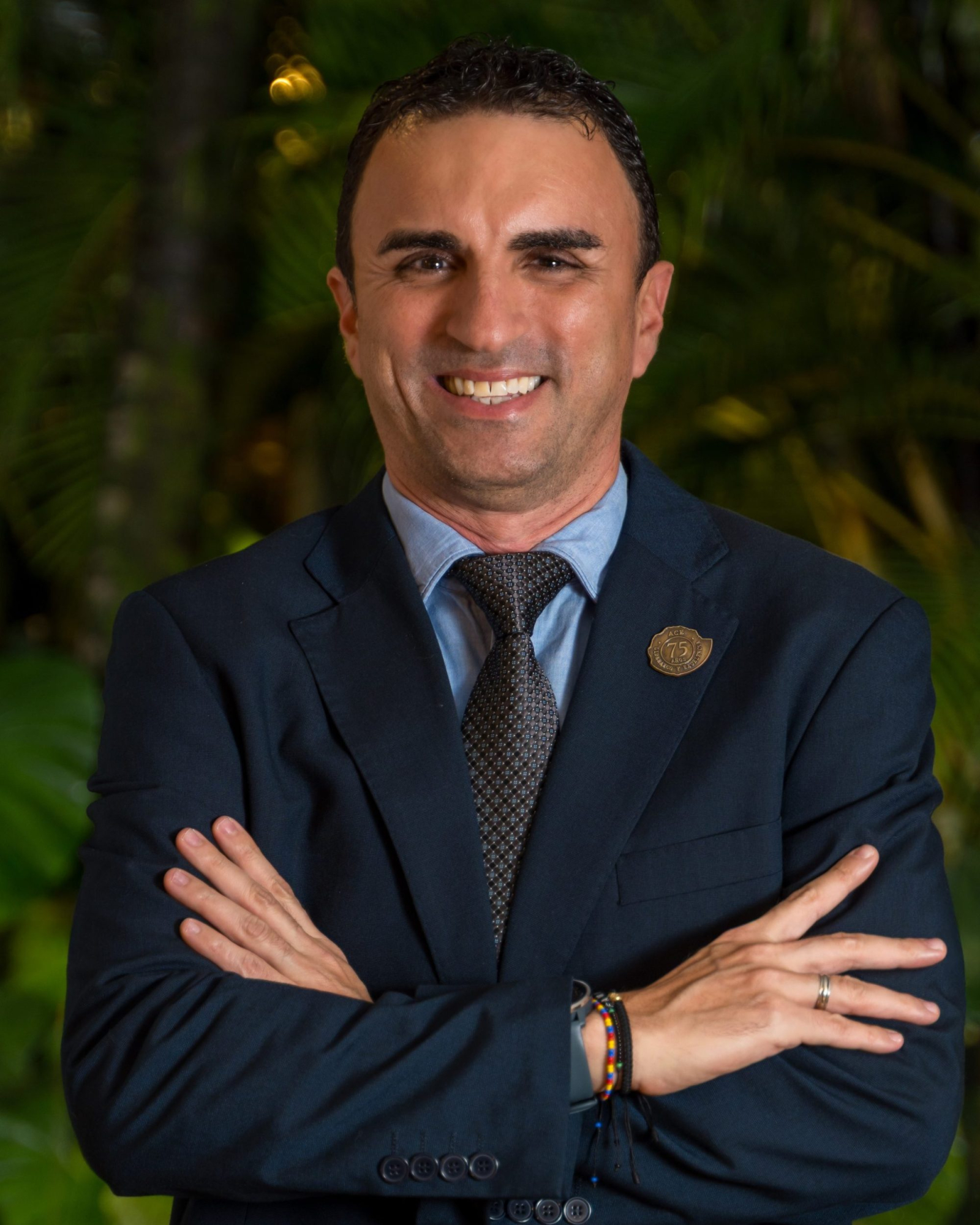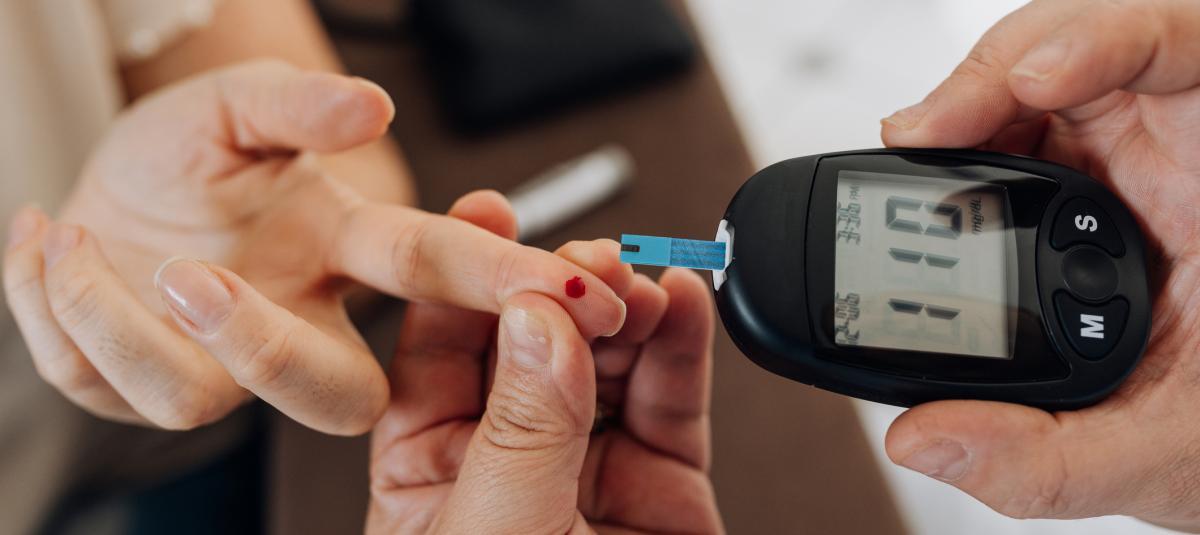'Colombia is currently consuming excessive iodine, which may be contributing to the prevalence of thyroid diseases.'

Colombia may be consuming excessive iodine. This is the warning from José Luis Torres, president of the Colombian Association of Endocrinology, Diabetes, and Metabolism (ACE). According to the expert, excess iodine in daily consumption is occurring primarily through salt, as recent studies have shown that Colombia has moved from a deficit to an excess of this mineral, a situation that may be increasing the prevalence of thyroid diseases.

José Luis Torres, president of the Colombian Endocrinology Association. Photo: Colombian Endocrinology Association
“Studies have shown that there is currently an excess of iodine in Colombia. This may be contributing to the prevalence of thyroid diseases. Therefore, we encourage responsible actors to be aware of this information and take action, keeping the health of the population in mind. We are promoting a bill in the Senate on this issue,” Torres said.
In Colombia, the ACE has promoted educational work to strengthen medical knowledge and development around these topics, which are the research topics of its more than 400 members. This year, Medellín hosted the National Congress of Endocrinology, an event that brought together more than 4,300 national and international physicians, making it one of the largest medical gatherings in the region. Additionally, through its digital platform, EndoCampus, the ACE promotes continuing medical education nationally and internationally.
In an interview with EL TIEMPO, Torres also made an urgent call for the public to educate themselves through verified scientific and medical sources. He criticized the rise of influencers and non-specialized health professionals who disseminate recommendations on nutrition, exercise, obesity, or diabetes without proper support and emphasized that endocrinologists are the medical professionals qualified to lead the comprehensive approach to these conditions.

The endocrine system regulates hormones, which can be linked to weight gain or loss. Photo: iStock
Endocrinology is a branch of medicine that deals with diseases that are part of the endocrine system. This system is composed of structures called glands that produce substances called hormones, and each hormone has a vital function in the functioning of the human body. In this context, endocrinologists specialize in diseases such as diabetes, obesity, osteoporosis, thyroid problems, sex hormones, and pituitary gland disorders, among others.
These days, we see many influencers, including healthcare professionals who aren't endocrinologists, talking about topics you've studied for years. Why is it important to see an endocrinologist and not be guided by unverified sources? I'll answer your question by describing the path to ultimately becoming an endocrinologist. It takes seven years of medicine, then three more years of internal medicine, and then two years of endocrinology. Even so, we must continue studying and updating every day due to the challenges our specialization presents, as we manage public health conditions and rare diseases that, if not adequately managed, increase the risk of morbidity and mortality. Therefore, we encourage the public to seek advice from endocrinologists when they have conditions related to our specialty.
You at ACE have a significant impact on medical education in the country. How do you achieve this? The Colombian Endocrinology Association has always been a leader, working for patients, physicians, and continuing education. This year, we held 21 events in various regions of the country, in addition to academic activities in cities to generate knowledge. In Medellín, from April 3 to 6, we held our National Endocrinology Congress, which brought together 4,300 attendees, an unprecedented number for medical events in the region. It was a city-wide congress, with activities for patients, community interaction, and resolution of questions, which allowed for opportunities to meet with specialists.

One of the conditions endocrinologists treat is diabetes. Photo: iStock
It's a very hard work we carry out with the support of a committed administrative team, led by our manager, Francisco Espinosa, and our project director, Natalia Arcila. In addition to in-person events, we have a digital communication channel: EndoCampus. Through this platform, any physician in the world can virtually access our symposia and conferences, gaining feedback for their professional development. It's a tool that makes knowledge accessible to the entire medical community.
One of the topics they've addressed is iodine. Why are we consuming so much iodine, and what risks does this entail? Policies regarding iodine intake have been led by colleagues who are experts on the subject. Studies have shown that there is currently an excess of iodine in Colombia. This may be contributing to the prevalence of thyroid diseases. Therefore, we encourage responsible actors to be aware of this information and take action, keeping the health of the population in mind. We are promoting a bill in the Senate on this issue.

In Colombia, salt may be overly iodine-laden, according to the ACE (Association of Commerce and Industry). Photo: iStock
I'll give you two examples: acromegaly is a disease where there is an excess of growth hormone. If not diagnosed early, it increases morbidity and mortality. Simple questions such as whether the patient notices that rings no longer fit or their shoe size has increased can help to suspect it. There is also Cushing's disease, where there is excess cortisol. This hormone is necessary, but too much of it can cause complications. In both cases, an endocrinologist should lead the approach, although we also work with neurosurgeons, radiologists, and other specialists.
What is your message to the public and public health leaders? To the public: seek advice from endocrinologists for the comprehensive management of these types of diseases and ensure you receive information from reliable sources. On issues such as nutrition, exercise, obesity, and diabetes, the endocrinologist is the leading professional. To those responsible for public health, I encourage you to contact the Colombian Association of Endocrinology. We are always willing to participate in technical roundtables to contribute our medical experience and ensure that the population receives adequate care and protects their lives, which is our most important mission.
Environment and Health Journalist
eltiempo




